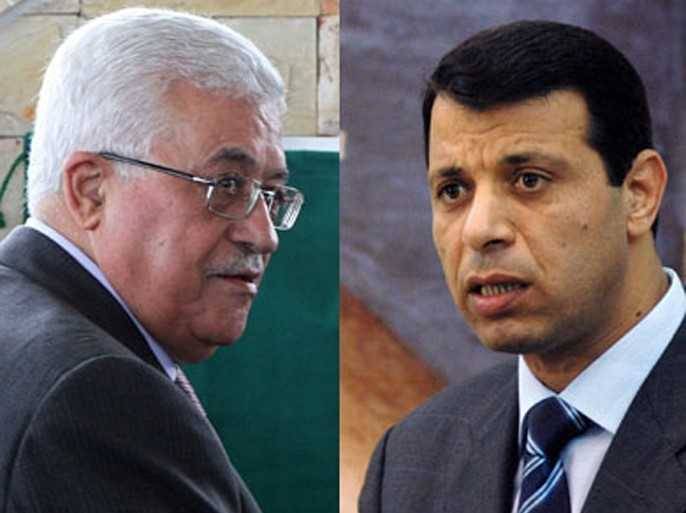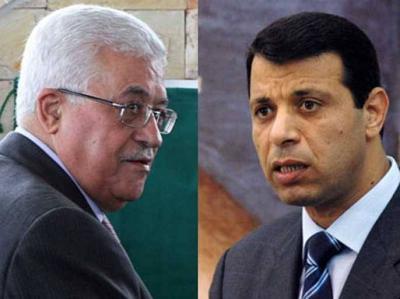Who will succeed President Mahmoud Abbas as the head of the Palestinian Authority? This might be the most discussed question among Palestinian, Israeli, regional, and international decision-makers. The world is studying and monitoring the scene in case something happens to President Abbas, who is 85 years old and showing signs of illness and fatigue. So, who is most likely to succeed him? Retired Brigadier General Dr. Hisham Jaber, head of the "Middle East Center for Studies and Public Relations," tells "Al-Markazia": "Not only is 'Abu Mazen' ill, and we wish him recovery and long life, but also constitutionally and Palestinian-wise, the mandate of the Palestinian Authority has ended, and elections were supposed to be held three years ago, but they did not occur. Therefore, it is necessary to change the authority if it wants to continue. As for who will succeed Abbas, no one knows, because Palestinians are divided into several beliefs and ideologies, and the Arab countries that fund the authority have their influence in the matter."
Regarding the notion that "Mohammad Dahlan or those he nominates are the most likely to succeed Abbas, and that Dahlan, who is in the UAE, is qualified for this position, especially since the Israeli side encourages his rise because he is willing to resolve the crisis and halt resistance in Gaza and unify the Palestinian stance between Fatah and Hamas,” Jaber replies: "I prefer not to mention names, but the name Mohammad Dahlan was raised, and his stocks were very high until news about him and objections spread, so I exclude his arrival. In my opinion, the next president will not be from Hamas nor from the hawks of Fatah but will be a consensus president who represents all Palestinians, a rational and neutral person who enjoys the approval of all parties, provided he can gain the approval of the Gulf states that fund the Palestinian Authority. We cannot know now who it will be, there is still plenty of time, and even starting to look for a personality will take months to reach an agreement on a specific person to head the authority."
He continues: "It seems that there is still no agreement on the name that will succeed Abbas, nor is there consensus on a solution and peace project between those who see resistance as the solution and those attached to the two-state solution, and among those who encourage a single state with two nationalities, and those who call for a confederation between Jordan, Israel, and Palestine." Jaber states: "Before talking about the two-state solution, I would like to remind you of the Oslo Agreement, which is a historic agreement between the Palestinian Authority and Israel to resolve the Palestinian-Israeli conflict, which was reached during Yasser Arafat's time, but what was the result of Oslo? Was it implemented? Did Israel grant Palestinians what it promised in Oslo? The answer is no. Therefore, the situation is similar to what happens in Lebanon with the Taif Agreement; they applied it first and then determined the flaws to amend them. The Oslo Agreement has not been implemented for thirty years or more for us to start discussing the two-state solution and others. Oslo talks about a complete and integrated Palestinian Authority with powers existing in the West Bank and Gaza and states that Israelis have only a temporary relationship for the protection of their security, and prohibits settlements in the West Bank, but what happened is the opposite. Why do we want to talk about a two-state solution while there are 800,000 Jewish settlers in the West Bank? What state or mini-state will be given to the Palestinians when there are about a million Jews in that state or mini-state? The situation is difficult. Before starting any proposals, in my opinion, we should choose not only the President of the Authority but also a council with a leader who represents the Palestinian Authority, not a rule of individual as happened with Mahmoud Abbas."
The head of the political bureau of Hamas, Ismail Haniyeh, said to the camp residents during a public festival yesterday in Sidon: "Prepare yourselves, for the return is near." Are there any indications of change in the region? Jaber says: "I do not believe so; even if there are promises, I do not trust them. Who wants to return them, and has Israel recognized the right of return? In 2002, the Arab summit in Beirut failed, and events followed in Syria because Presidents Emile Lahoud and Bashar al-Assad insisted then on including the right of return for Palestinians, which was rejected at the summit by the Arab states, since the United States does not accept the right of return because Israel does not accept it, and everyone seeks to resettle Palestinians. The issue of resettling Palestinians and not recognizing the right of return is a fundamental issue. When will they return and to where? To Gaza, the West Bank, or Palestine before 1948? I do not believe in these promises. And Haniyeh might be giving Palestinians hopes because the Palestinian narrative is always 'we will return, we will return, we will return,' and this slogan should remain, but when will we 'return'? Only God knows, as it has been eighty years, and we say 'we will return,' and even some elderly in the camps of Sabra and Burj al-Barajneh carry the keys to their homes in Haifa and Jaffa, and the key has rusted."
Today, Haniyeh raised the topic of rebuilding the Nahr al-Bared camp; Jaber responds: "This means that there is no return at present, and this has a material cost. If the government proceeds with it, this means reinforcing the Palestinian presence, but their reinforcement is humanitarian, not resettlement since resettlement is prohibited as it would turn the demographic situation in Lebanon upside down, and no one would accept it. Lebanon still refuses resettlement even today, and it will not accept it even if some seek it, as it disrupts demographics and the balance in Lebanon, and the right of return is still rejected by the United States and Israel, even in theoretical acknowledgment." When asked if U.S. President Joe Biden has any solution during his Middle Eastern tour, which will include Israel, he says: "Biden will not bring anything substantial and will not pressure Israel to change its position on the right of return. We, in Lebanon, were victims of Palestinians, especially during the two-year war and the problems that occurred in 1969, and Palestinians themselves are victims of the Arab regimes that are fighting among themselves and forgot the Palestinian cause."




